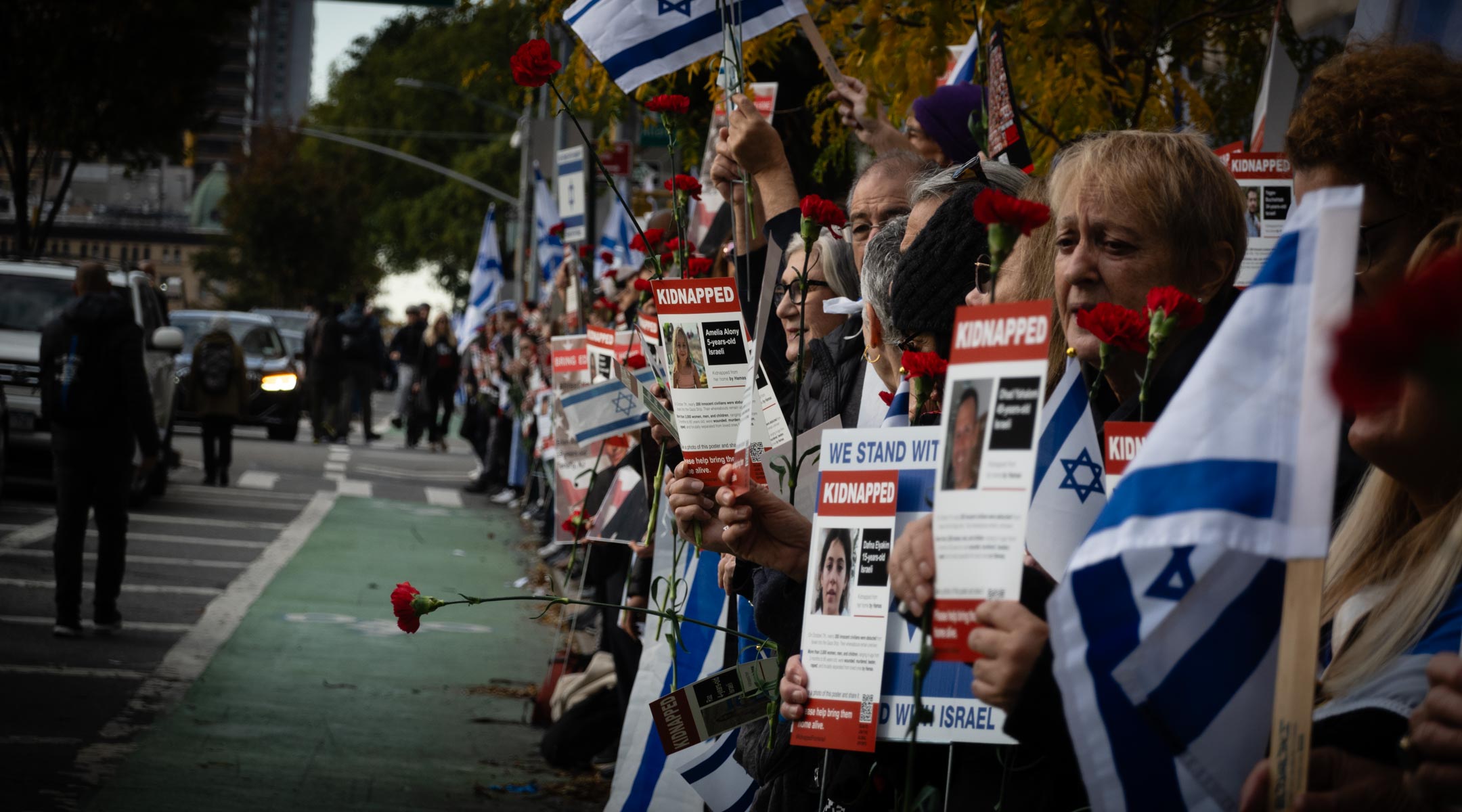It’s official: Israel approves deal with Hamas to free at least 50 hostages in exchange for pause in fighting
The deal is a milestone in the global campaign for the release of the 240 hostages taken captive by the terror group on Oct. 7

Israelis and supporters rally in support of Hamas hostages outside the United Nations, October 24, 2023. (Luke Tress)
(JTA) — Following six weeks of fighting, Israel’s government has agreed to a deal with Hamas that will free about 50 of the hundreds of hostages that Hamas took in its Oct. 7 attack on Israel. Most of those released will be women and children.
The deal is a milestone in the global campaign for the release of the 240 hostages taken captive by the terror group on Oct. 7. That attack, which killed 1,200 people, began a war between Israel and Hamas in which Israel has vowed to depose Hamas, which controls Gaza. Tuesday’s agreement — which was brokered by the United States and Qatar and approved by Israel’s government over far-right opposition — will also include the first sustained pause in the fighting since Oct. 7.
“Before us this evening is a hard decision, but the correct decision,” said Israeli Prime Minister Benjamin Netanyahu ahead of the government’s vote. “The entire security establishment supports it, and fully.”
Citing a medieval Jewish sage, he added, “There is no greater commandment than the redemption of hostages, as Ramban said.”
Under the reported deal, 50 hostages will be released over four days starting on Thursday or Friday. Afterward, Hamas can extend the truce by releasing an additional 10 hostages a day. Up to 80 of the estimated 240 hostages in Gaza could be released. The deal does not include the release of Israeli soldiers taken captive, nor does it involve the release of foreign nationals.
Here’s what you need to know about the hostage deal, including what is known about the hostages who are not being released and the opposition the deal faced within the Israeli government.
In exchange, Israel will release three Palestinian prisoners for every hostage released, 150 for the initial group released in the coming days, and up to 240 Palestinians in total. That represents only a tiny fraction of the approximately 5,000 Palestinians held in Israeli prisons on security offenses prior to Oct. 7.
Israel is also agreeing to pause its offensive in Gaza for at least four days and to suspend aerial surveillance for six hours a day during that time, in part so Hamas can locate additional hostages. Israeli soldiers will remain in northern Gaza, which they invaded last month, during the pause. On Tuesday, ahead of the vote on the agreement, Netanyahu vowed that the fighting would continue after the pause.
“The war will continue until we achieve all our goals: destruction of Hamas, the return of all of our hostages, and to ensure that the day after Hamas, Gaza will no longer threaten Israel,” he said. “There will be no force there that supports terrorism, that educates its children in terrorism, and that threatens the state of Israel.”
This article originally appeared on JTA.org.





















